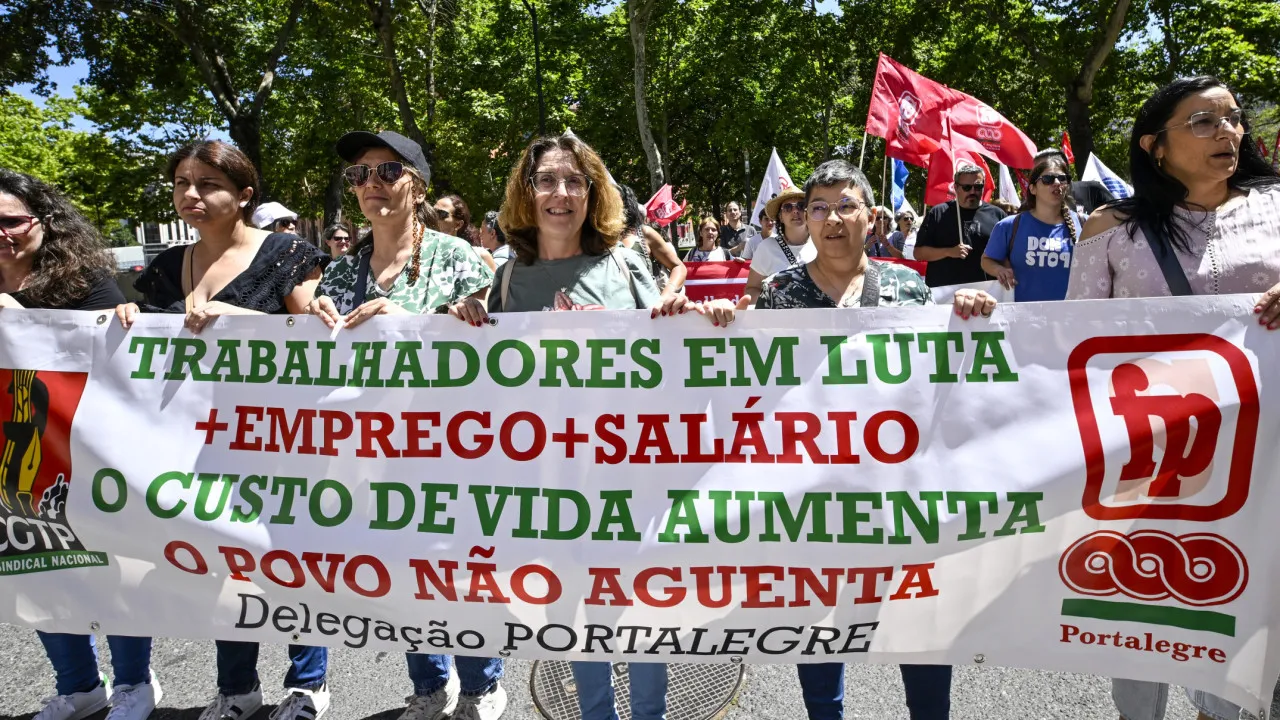
Catarina Fachadas, a leader of the Union of Workers in Commerce, Offices, and Services of Portugal (CESP), reported that around 20 to 30 people gathered outside the Ministry of Employment, Solidarity, and Social Security, where they unanimously approved a resolution with their demands before presenting it to an aide of the Deputy Secretary of State for Labor.
They are demanding from the União das Misericórdias Portuguesas (UMP) a salary increase of 150 euros, retroactive to January, as well as the negotiation of a Collective Labor Agreement that ensures the rights currently held by workers.
According to the union representative, UMP has annually adjusted salaries to match “the minimum wage,” with “a slight adjustment for some long-serving workers above the minimum wage.”
“But we’re talking about increases of 20 euros or 10 euros, which are very insignificant compared to what is needed,” she stated, “a real increase that reflects the rising cost of living.”
UMP has already agreed to update wages for the current year “with the Union Front of the General Union of Workers (FSUGT) and the Negotiating Commission of the General Confederation of Portuguese Workers (CGTP),” said Miguel Raimundo, a member of the National Secretariat responsible for collective bargaining.
CESP is affiliated with this latter union, but the agreement reached “does not include CESP,” he added.
“UMP has been negotiating with CESP for several years and throughout 2025 the negotiations will continue (…) but we have yet to reach an agreement,” noted Miguel Raimundo, announcing a new negotiation round scheduled for September 9, in which UMP will participate.
With FSUGT and the Negotiating Commission of CGTP, an update of 50 euros was agreed upon, aligning “with the increase in the national minimum wage across all professional categories,” affecting all Misericórdias represented by the union and workers represented by the negotiating unions.
For other workers, whether affiliated with CESP or not unionized, “it is customary for a subsequent extension ordinance to be published” to include them, he added.
CESP criticizes that “many of the Misericórdias have not updated the salaries of CESP-affiliated workers,” resulting in “employees working side by side, performing the same function (…) with the same years of service, some receiving the minimum wage and others slightly more.”
Miguel Raimundo acknowledges that such a situation “is possible but not desirable,” stating that UMP provides recommendations to its affiliates, but “each Misericórdia has its autonomy, and managing these situations is up to their respective administrative boards.”
“There is no hierarchical relationship between the UMP and the Portuguese Misericórdias,” he emphasized, although he believes “there are not many” differentiating their workers based on union affiliation.




